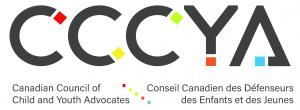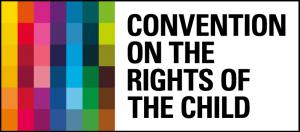Child and Youth Advocates Reflect on 30 Years of Children's Rights in Canada
Children Remain Vulnerable to Section 43 of the Criminal Code
SASKATOON, CANADA, December 13, 2021 /EINPresswire.com/ -- December 13, 2021 marks 30 years since Canada ratified the United Nations Convention on the Rights of the Child (UNCRC). This legally-binding human rights treaty sets out 42 protection, promotion and participation rights for young persons under 18.
“As a signatory, Canada made a commitment to Canadian children that their unique rights would be at the fore of all public policy. This means acting in their best interests, protecting them from harm, giving them a voice about matters that affect them, and providing them with what is needed to grow to their full potential,” said Dr. Lisa Broda, President of the Canadian Council of Child and Youth Advocates (CCCYA) and Saskatchewan’s Advocate for Children and Youth.
In the most recent UNICEF Report Card, issued in 2020, Canada was ranked 30th among 38 wealthy countries in relation to the overall well-being of children and youth under 18. “It is stunning to see that although Canada’s economic, environmental and social conditions are strong, we have such abysmal outcomes for child well-being,” stated Broda.
“We just don’t place a high enough value on young people. This is reflected in antiquated systems and laws that fail to protect children from their right to bodily integrity and the right to be safe from physical harm,” Broda noted.
One example of this is section 43 of the Criminal Code which legally permits corporal punishment of children and has been used to defend assault of children for the purpose of corrective discipline. While there are limits on the force that can be used, legal interpretation and application of these limits have been inconsistent, resulting in children not being afforded the same protections against violence that are taken for granted by adults.
“Parenting practices, as well as our understanding of their impacts, have changed over time. Section 43 goes against the solid body of research demonstrating the immediate and long-term harms that corporal punishment imposes on children, and on society generally. It must be repealed,” said Broda.
The need to protect children and youth from physical violence becomes even more urgent as the COVID 19 pandemic persists and families are under increased stress – conditions which have resulted in increased violence against children. “63 countries have ended the practice of corporal punishment as condoned by law, and as a nation the CCCYA encourages everyone to raise their voices and calls upon Canada to finally repeal section 43,” said Broda.
Children and youth in Canada have, for 30 years now, been afforded unique rights under the UNCRC. “It is time to advance those rights into more action so that our ranking is consistent with our privilege as a country, and children no longer suffer from rights unrealized,” said Broda.
See Backgrounder
-30-
About the Canadian Council of Child and Youth Advocates
The CCCYA is an association of children's Advocates, Representatives and Ombudspersons from across Canada who are independent officers of the legislatures in their respective jurisdictions with mandates to promote and protect children’s human rights through complaint resolution, advice to government, amplification of child and youth voices, and public education. The work of CCCYA members is grounded in the United Nations Convention on the Rights of the Child (UNCRC). Members work together to identify areas of mutual concern and address national issues.
Media inquiries:
Karen Topolinski
Media Relations
ktopolinski@saskadvocate.ca
-------------------------------------
CCCYA MEMBERS:
ALBERTA
Child and Youth Advocate
Ph: (780) 422-6056
Email: ca.information@ocya.alberta.ca
BRITISH COLUMBIA
Representative for Children and Youth Toll-Free: 1-800-476-3933
Email: rcy@rcybc.ca
MANITOBA
Advocate for Children and Youth
Ph: (204) 988-7440
Email: info@manitobaadvocate.ca
NEW BRUNSWICK
Child and Youth Advocate
Ph: (506) 453-2789
Email: advocate-defenseur@gnb.ca
NEWFOUNDLAND AND LABRADOR
Child and Youth Advocate
Ph: (709) 753-3888
Email: office@ocya.nl.ca
NOVA SCOTIA
Office of the Ombudsman
Youth Services
Ph: (902) 424-6780
Email: ombudsman@novascotia.ca
NUNAVUT
Representative for Children and Youth
Ph: (867) 975-5090
Email: contact@rcynu.ca
ONTARIO
Office of the Ombudsman
Children and Youth Unit
Ph: (416) 325-5669
Email: cy-ej@ombudsman.on.ca
PRINCE EDWARD ISLAND
Office of the Child and Youth Advocate / PEI
Ph: (902) 368-5630
Email: voiceforchildren@ocyapei.ca
QUÉBEC
Commission des droits de la personne
et des droits de la jeunesse
Tél: (514) 873-5146
Email: information@cdpdj.qc.ca
SASKATCHEWAN
Advocate for Children and Youth
Ph: (306) 933-6700
Email: contact@saskadvocate.ca
YUKON
Child and Youth Advocate
Ph: (867) 456-5575
Email: annette.king@ycao.ca
-------------------------------------
Backgrounder
The Canadian Council of Child and Youth Advocates calls upon the Canadian government to repeal section 43 of the Criminal Code.
Section 43 of the Criminal Code is almost 130 years old and is an outdated codification of English common law, which treated children as property, and has been used to defend corporal punishment and assault of children for the purpose of corrective discipline. This type of corrective discipline or corporal punishment of all other Canadian citizens by persons in authority is prohibited. Surely children should not be relegated to second-class citizens in a country as enlightened as Canada. The continued use of physical punishment in the case of children violates their rights to live free from all forms of violence and to receive equal protection under the law, as guaranteed to all persons by the United Nations Convention on the Rights of the Child and the Canadian Charter of Rights and Freedoms. It also violates children’s right to respect for their human dignity and physical integrity, as well as their rights to health, development, and education.
A solid body of research has demonstrated that corporal punishment is often the most common form of violence experienced by children and that it is strongly associated with broad and enduring personal and societal harm that can follow children into adulthood.
Corporal punishment is consistently linked to bodily injury, mental health problems, impaired relationships with parents and caregivers, weaker moral internalization, development of antisocial attitudes (bullying, dating violence, peer aggression), alcohol and drug abuse, disrupted brain development, poorer cognitive development and school achievement, and increased risk of violence toward intimate partners and children in adulthood. No evidence has ever been found of any long-term benefits.
Not only is corporal punishment linked to lifelong harm of children who experience it, but it is often transmitted across generations, along with its negative and traumatic outcomes. The far-reaching generational impacts of the violence experienced by multitudes of Indigenous children placed in residential schools is powerful evidence of this cycle of harm. This has caused the Truth and Reconciliation Commission of Canada to identify the repeal of section 43 as its sixth Call to Action, stating, “Corporal punishment is a relic of a discredited past and has no place in Canadian schools or homes.”
Canada is out of step with international developments and falling further behind the growing number of countries globally that have enacted strong “full prohibition” legislation in recognition that corporal punishment is a violation of children’s human rights.
To date, 63 countries have prohibited corporal punishment in all settings (homes, schools, alternative care), as well as Scotland and Wales, and 27 more have committed to doing so. Across the European Union, 22 of the 28 European Union member states have achieved full prohibition. Canada has unfortunately not yet made such a commitment, even though it is a Pathfinding Country under the Global Partnership to End Violence Against Children, which carries with it the commitment to implement the prohibition against all corporal punishment of children. In addition, all United Nations member states, including Canada, have adopted a target of ending all forms of violence against children under the new Agenda for Sustainable Development 2030.
The United Nations Convention on the Rights of the Child – ratified by Canada 30 years ago – obligates Canada to protect children from all forms of violence. There has been an increasing urgency expressed by the United Nations Committee on the Rights of the Child, which monitors compliance with the United Nations Convention on the Rights of the Child, in calling for Canada to repeal section 43, indicating that it is “gravely concerned” that “the legalization of corporal punishment can lead to other forms of violence.”
The constitutionality of section 43 was challenged in 2004, but the Supreme Court of Canada upheld the constitutionality of section 43 of the Criminal Code and set limits on the force that parents/guardians can use in administering corporal punishment. Unfortunately, these limits have been interpreted and applied in contradictory ways by lower courts and have failed to protect children from harm in any significant way. These judicial parameters have simply painted a confusing developmental and anatomical map of permitted zones of corporal punishment that leaves children unprotected in circumstances where they are between the ages of 2 and 12, are hit below the neck, and are struck with a hand.
There are a couple of important distinctions to be made. First, the prohibition against corporal punishment does not in any way diminish the importance and appropriateness of non-violent physical discipline, which is required to provide guidance and promote healthy development and respect for the rights of others. Secondly, the prohibition against corporal punishment does not mean that parents, caregivers, and educators will be exposed to criminal charges for taking protective action to prevent or restrain children from being hurt (e.g., running in front of speeding car or touching a hot stove) or hurting others. There are provisions in the Criminal Code and through the common law which excuse such actions on the part of parents, caregivers, and educators.
Canada has enjoyed a well-deserved reputation for social justice and leadership in protecting vulnerable persons. But Canada is long overdue in ensuring that our youngest and most vulnerable citizens have the same protection against violence that is taken for granted by adults. With the 30th anniversary of Canada’s ratification of the United Nations Convention on the Rights of the Child, it is time for Canada to step up and regain its reputation on the international stage as a principled and credible voice for children’s human rights.
Karen Topolinski
Media Relations, CCCYA
ktopolinski@saskadvocate.ca
Legal Disclaimer:
EIN Presswire provides this news content "as is" without warranty of any kind. We do not accept any responsibility or liability for the accuracy, content, images, videos, licenses, completeness, legality, or reliability of the information contained in this article. If you have any complaints or copyright issues related to this article, kindly contact the author above.



